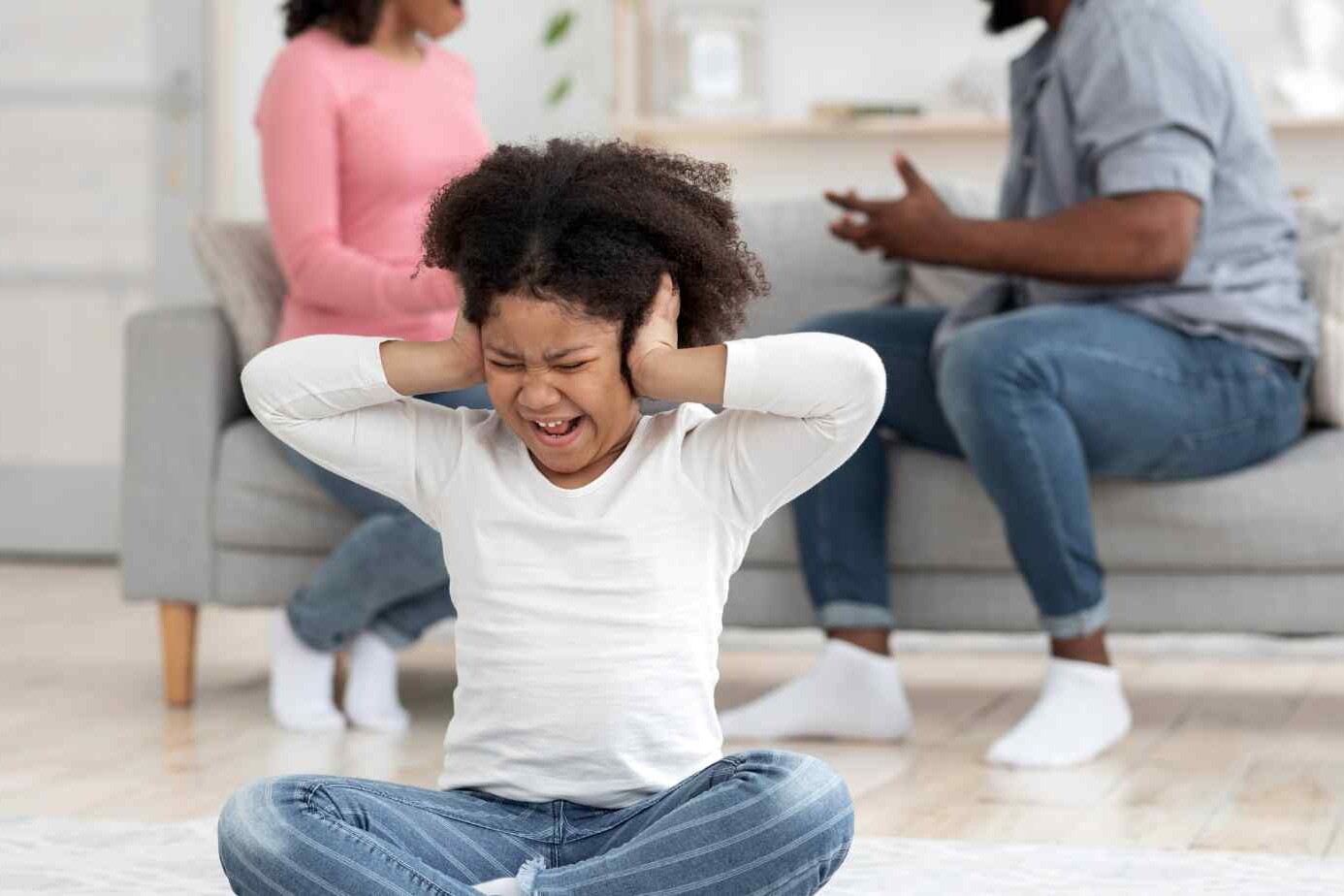Have you ever felt like your partner just doesn’t get you anymore? Maybe you talk, but it feels like the words bounce off a wall. If yes, you’re not alone. So many couples love each other deeply, but still struggle with one thing: bold communication in marriage. It’s not about big speeches or fancy advice, it’s about the simple, daily moments where connection either builds or breaks.
In this blog, we’ll explore why bold communication in marriage matters, what usually goes wrong, and proven ways to fix it. From research-backed methods to real-life couple stories, we’ll go deep into what works and what doesn’t, with tools you can actually use.
Table of Contents
ToggleWhy Communication in Marriage is So Important?
Marriage doesn’t fall apart overnight. It cracks slowly at the seams. And one of the earliest cracksis poor communication in marriage.
Let’s break down how it affects every layer of your relationship.
The Role of Communication in a Healthy Relationship
A healthy marriage thrives on consistent, kind communication. It isn’t just about talking more, it’s about understanding better.
- Emotional intimacy and trust-building
- When couples share their thoughts and emotions regularly, trust grows.
- Talking openly allows vulnerability, which deepens emotional bonds.
- Trust builds slowly but breaks fast without real communication.
- Conflict prevention and resolution
- Many fights happen not because of issues, but because of how we talk.
- Communication helps avoid misunderstandings before they grow.
- It’s not about winning arguments but understanding feelings.
- Sharing responsibilities and goals
- Marriages involve daily tasks, financial decisions, parenting, and planning.
- If one partner always leads and the other follows silently, resentment builds.
- Sharing and discussing goals keeps both people invested equally.
Statistics That Prove the Importance of Communication
Let’s look at some real numbers to understand the true weight of this issue:
| Source | Key Finding |
|---|---|
| Gottman Institute | 69% of marital conflicts are never fully resolved. Couples learn to manage them through good communication. |
| American Psychological Association (APA) | Poor communication is one of the top predictors of divorce in married couples. |
| National Survey (2023) | Over 60% of couples say they feel emotionally disconnected because of communication breakdowns. |
When the numbers talk this loudly, it’s clear: communication in marriage is not optional.
Common Communication Problems in Marriage
Not all communication issues are obvious. Some are small habits that quietly eat away at closeness.
Lack of Active Listening
Most people listen to reply, not to understand. That’s where things go wrong.
- Not truly hearing your partner causes emotional distance.
- You miss out on their needs, fears, and wishes.
- It creates a cycle: one person stops sharing, the other stops caring.
This damages emotional safety in the relationship.
Passive-Aggressive Behaviors
Sarcasm, silent treatment, and eye rolls might feel small but they’re deadly over time.
- They create fear and confusion.
- Your partner starts to second-guess your intentions.
- These behaviors show emotional immaturity and make conflict worse.
It’s communication, yes but the wrong kind.
Misinterpretation of Intent
Tone matters. So does body language. But many couples only focus on words.
- Saying “I’m fine” with a cold face doesn’t mean you’re fine.
- Unspoken expectations often go unmet.
- Assumptions replace clarity.
That’s how little issues turn into big fights.
Avoidance of Difficult Topics
Some topics feel too heavy. But avoiding them only adds weight to the silence.
- Finances, sex, parenting, and trauma often get swept under the rug.
- Avoiding hard talks can cause bigger problems in the long run.
- These are exactly the topics that need honest, calm discussion.

Proven Strategies to Improve Communication in Marriage
This is where real change begins. Let’s explore powerful strategies that work.
Practice Active Listening Techniques
Active listening is about hearing, understanding, and validating.
- Repeat back what your partner says (“So you’re saying you feel left out?”).
- Maintain eye contact.
- Use open body language (no crossed arms).
- Don’t interrupt or change the subject.
This makes your partner feel heard and valued.
Establish Regular Check-ins
Don’t wait until things fall apart. Talk regularly.
- Set a 30-minute marriage check-in every week.
- Ask each other: “How are we doing?” “What do you need more of?”
- Use an emotional thermometer: Green (Good), Yellow (Worried), Red (Not Okay)
These small meetings prevent big fights.
Use “I” Statements, Not “You” Accusations
Good communication skills help you get through marriage’s tough times. This tiny change lowers defenses instantly.
- Say: “I feel hurt when I’m ignored.”
- Don’t say: “You never care about me.”
- This helps your partner hear your pain, not just defend themselves.
Conflict goes down when blame stays out.
Learn and Speak Each Other’s Love Language
Dr. Gary Chapman’s 5 Love Languages are: Words of Affirmation, Quality Time, Acts of Service, Physical Touch, and Gifts.
- Know your partner’s top two.
- Express love in their language, not just yours.
- Love becomes visible and felt again.
It’s a game-changer for emotional closeness.
Take a Break During Heated Arguments
When tempers rise, brains shut down.
- Neuroscience shows emotional flooding lasts around 20 minutes.
- Walk away calmly and agree to return after 20-30 minutes.
- Use this time to breathe, reflect, and calm your body.
Better outcomes follow emotional control.

Tools and Exercises to Foster Better Communication
Improving communication in marriage also needs action. Let’s add structure.
Journaling Together
Writing brings clarity that talking sometimes can’t.
- Exchange weekly love letters.
- Write down what went well and what didn’t.
- Reflect on how you handled conflict.
It keeps connection alive even during quiet times.
Couples Communication Worksheets
These are like gym exercises for your marriage.
- Daily reflection sheets
- Conflict resolution templates
- Goal setting and shared vision documents
These tools are practical, and available on sites like Gottman.com.
Use of Relationship Apps
Apps are like personal coaches in your pocket.
| App Name | Features |
| Lasting | Personalized marriage plans & sessions |
| Gottman Card Decks | Conversation starters & exercises |
| Between | Private chat app for couples with memory sharing |
Using tech can make emotional growth easier.
When to Seek Professional Help?
Sometimes, doing it yourself isn’t enough. And that’s okay.
Signs That You May Need Couples Counseling
If you relate to any of these, therapy could help:
- Same argument repeating often
- You feel emotionally alone, even when together
- No improvement despite trying hard
Therapy is not weakness. It’s a brave choice.

Long-Term Habits for Communication in Marriage
Short fixes don’t last. Good habits do.
Build a Culture of Appreciation
Saying thank you goes a long way.
- Thank your partner for small daily things.
- Point out what you love about them.
- This changes the mood of the entire home.
Keep the Friendship Alive
Gottman says: Strong friendship = strong marriage.
- Spend time together outside of chores.
- Ask fun questions. Laugh together.
- Date each other regularly.
Marriages die when fun disappears.
Keep Learning and Growing Together
Curiosity keeps love fresh.
- Read books on relationships.
- Take workshops or watch videos together.
- Learn how trauma affects love and communication.
Couples who grow, stay close.
Prioritizing Communication for a Thriving Marriage
Many couples struggle in silence. Don’t be one of them. As a neurologist, I see the toll emotional stress takes on the brain and body. Anxiety, PTSD nightmares, and even memory issues can trace back to emotional disconnects at home.
If you or your partner experience nighttime anxiety trauma, C-PTSD and insomnia, or are wondering how to sleep with trauma, it’s time to take care of both your mind and your marriage.
Book a consultation with me to explore trauma-informed sleep techniques, therapy options, and ways to build safe, strong, and lasting communication in marriage.
Remember: Small daily talks build unbreakable marriages.
FAQ
What is the importance of communication in marriage?
Communication is key to a happy marriage. It builds intimacy, trust, and helps couples solve problems together.
What are some common communication challenges faced by married couples?
Couples often struggle with not listening well, using “you” statements, and poor nonverbal cues. They also find it hard to empathize and compromise.
How can active listening improve communication in marriage?
Active listening means fully engaging with what your spouse says. Pay attention to their tone, body language, and feelings. Then, respond in a caring way.
Why is it important to use “I” statements in marital communication?
“I” statements help couples share feelings and needs without blame. This prevents defensiveness and keeps the conversation positive.
How can understanding nonverbal communication improve communication in marriage?
Nonverbal cues like facial expressions and body language say a lot. Paying attention to these can make your communication clearer and more understanding.
Why is empathy an essential component of effective communication in marriage?
Empathy lets couples feel heard and supported. It strengthens emotional bonds and leads to better conversations.
How can compromise improve communication in marriage?
Compromise means finding solutions that work for both. It stops power struggles and builds a stronger relationship.
How can avoiding criticism and blame improve communication in marriage?
Criticism can make your spouse feel attacked. Instead, express your feelings and needs kindly. This helps avoid conflicts.
Why is feedback important for communication in marriage?
Feedback is about giving and taking constructive criticism kindly. It helps couples improve their communication and relationship.
How can setting healthy boundaries improve communication in marriage?
Boundaries respect each other’s needs. They prevent conflicts and misunderstandings. It’s important to set and share them kindly.
Source Links
- https://freedmarcroft.com/10-ways-to-improve-communication-in-your-marriage-and-strengthen-your-relationship/ – 10 Ways to Improve Communication in Your Marriage and Strengthen Your Relationship
- https://www.marriage.com/advice/communication/4-tips-for-improving-communication-in-a-marriage/ – 15 Ways on How to Improve Communication in Marriage
- https://www.focusonthefamily.ca/content/love-and-communication-11-expert-tips-for-a-better-marriage – Love and communication: 11 expert tips for a better marriage
About The Author

This article is medically reviewed by Dr. Chandril Chugh, Board-Certified Neurologist, providing expert insights and reliable health information.
Dr. Chandril Chugh is a U.S.-trained neurologist with over a decade of experience. Known for his compassionate care, he specializes in treating neurological conditions such as migraines, epilepsy, and Parkinson’s disease. Dr. Chugh is highly regarded for his patient-centered approach and dedication to providing personalized care.
→ Book a consultation to discover which remedies suit your needs best.




